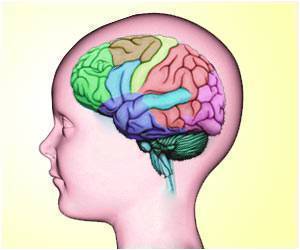Baby boys born to cannabis using mothers may have social skill issues when they grow up, finds a new study.

‘In the experiment, when male rat babies were exposed to cannabinoids while in the womb, they were found to be less social after birth compared to normal babies’





Senior author Olivier Manzoni, Inserm Research Director at the Mediterranean Institute of Neurobiology, and Director of the CannaLab at the institute, says: "As cannabinoids can cross the placenta, they may interfere with fetal endocannabinoid signaling during neurodevelopment, which is involved in regulating a variety of processes such as pregnancy, appetite, pain sensation, and mediating the pharmacological effects of cannabis. This could in turn lead to some serious long-term deficits. But despite increasing reports of cannabis consumption during pregnancy, the long-term consequences of prenatal cannabinoid exposure remain incompletely understood."To fill this knowledge gap, the international collaborators examined how prenatal cannabinoid exposure influences the synaptic and behavioral functions of the medial prefrontal cortex - a brain region often implicated in neuropsychiatric disorders - in adult male and female rats.
Their results revealed that males exposed to cannabinoids while in the uterus were less sociable than normal animals, and spent less time interacting with others. Their sniffing and playing behaviors were impaired, while the number of attacks among males remained unchanged. Additionally, the researchers saw that the exposed males had a heightened excitability of pyramidal neurons in the prefrontal cortex. None of these effects were seen in females.
"The deleterious effects of prenatal exposure to cannabinoids on social behavior were specific to male offspring only," explains co-first author Anissa Bara, who was a PhD candidate in Manzoni's lab at the time the study was carried out. "But while social interaction was specifically impaired in males, locomotion, anxiety and cognition remained unaffected in both sexes, suggesting discrete and sex-specific behavioral consequences of cannabinoid exposure during adulthood."
The results also revealed that the mGlu5 gene - an effector of endocannabinoid signaling in the prefrontal cortex - was reduced in the exposed males' prefrontal cortex. The team discovered that amplifying mGlu5 signaling could normalise the synaptic and behavioral deficits induced by prenatal exposure to cannabinoids partly by activating the cannabinoid type 1 receptor (CB1R). Similarly, later tests also revealed that enhancing levels of anandamide (a type of endocannabinoid) in exposed males helped to restore their social deficits via CB1R.
Advertisement
Source-Eurekalert














